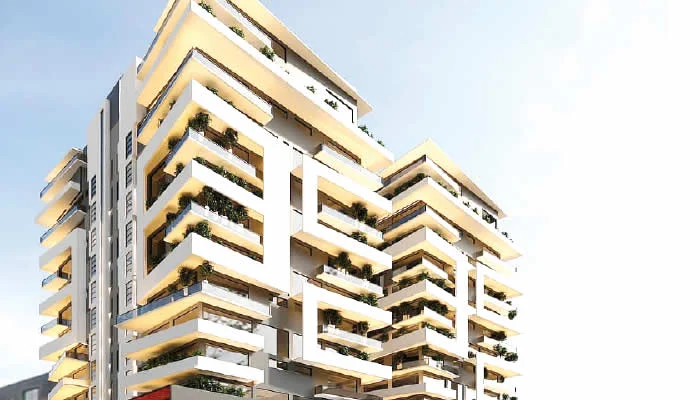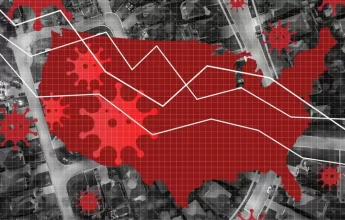Real estate firms woo Nigerians in Diaspora to Lagos highbrow apartments

EDIDIONG IKPOTO critically examines how the highbrow locations in Lagos state are gradually becoming investment havens for Nigerians who live abroad
The real estate market in Lagos has set itself apart from the standards obtainable in other parts of the country. As far back as the 1980s when high-rise buildings were merely figments of many people’s imaginations or far-fetched realities seen only in movies, Lagos boasted of gigantic buildings seen only in developed cities of the world. One of such structures is the Stallion Building, completed by Union Bank of Nigeria Plc in 1991.
When in 1960 Lagos became the capital of the newly independent Nigeria, the strategic designation and the potential in commerce placed it on the pedestal of states to unleash their potential. It also set the stage for the prospect of becoming a megacity.
With its rapid urbanisation, occasioned by the continued surge in commerce and industry, the real estate sector in the state recorded tremendous growth within a short period of time. It was at this point that Lagos’ geographical shortcoming became increasingly apparent.
By default, the topography of Lagos is dominated by its system of islands, sandbars, and lagoons. The city itself sprawls over what used to be the four main islands: Lagos, Iddo (now attached to the Mainland), Ikoyi (now attached to Lagos Island), and Victoria (now the tip of the Lekki Peninsula). Due to land reclamation efforts over the years, some of the original main islands are no longer true islands.
However, over the years, the part of Lagos now regarded as its island, which was formerly wetlands flanked by the Atlantic ocean, snowballed to become the main business and financial centre of the state. By implication, it became the most exclusive and expensive area to reside in Lagos.
After Nigeria’s Independence, successive governments tinkered with the idea of developing the state, culminating in the construction of a highway connecting Victoria Island to Epe. This activity, along with the rapid commercialisation of Victoria Island, served to stimulate residential development along the Lekki-Epe corridor, starting with Lekki Phase 1.
Today, Victoria Island, alongside its adjuncts – Ikoyi and Lekki – boasts of some of the most aesthetic structures in Africa, drawing massive investments into the real estate sector from home and abroad. As a matter of fact, there is a popular irony in Lagos that despite the high housing deficit in the state, many mansions on the island remain empty and unoccupied, reason being that many of the buildings are investments by Nigerians who live in the diaspora.
While the meteoric growth of the Lagos real estate market has been attributable to its industrial strength, one visible trend that has helped rake in these investments from the diaspora has been the competitive environment that has consequently spurred creativity among industry practitioners, with new innovations being churned out on a consistent basis to woo a spectrum of investors who are already exposed to global best practices in real estate development.
This innovation is seen in recent real estate development projects that now seek to create smart estates and smart homes with all the necessary accoutrements of self-sustainability. This idea was largely inspired by the Covid-19 pandemic and the work from home culture that came with it. These smart homes, in effect, seek to provide a mixed-use apartment that incorporates features which allow occupants to live and work within the same building and still produce optimal level results. To achieve this, developers have factored in elements like uninterrupted power supply and good internet access to help sell the idea to prospective clients.
There is also the drift towards sustainability and preservation of the environment, as recent trends in the real estate sector suggest that most new projects are making conscious efforts to “go green” and limit the carbon footprint on the ecosystem.
Of course, a diasporan Nigerian who is well acquainted with the conversation of achieving net zero carbon emissions in the near future is bound to key into projects which are more futuristic in nature.
One other factor that has played a contributory role in wooing diasporan investors into the highbrow real estate market has been the nature of the facility management. For an investor who lives abroad, this is very important. This is primarily due to the fact that facility management supports the functionality, safety and sustainability of buildings.
Most real estate investors today also characteristically desire appendage services such as cleaning, hardware inspection and maintenance, environmental health, space management, security services, and many others, all of which are offshoots of facility management.
The ultimate goal is to ensure that these high-priced investments are not left to lie fallow or face possible risks of being plundered by criminal elements.
Ultimately, it has been a strategic blend of the continued upscaling of standards, coupled with the profitability inherent in the market in these highbrow areas, that have drawn many diaspora investors to key into what has become a multi-trillion-naira market.
Over the years, studies and observation of trends have shown that the property market in these exclusive locations in Lagos is hugely profitable and has accounted for some of the most lucrative investments in the state.
As a result, many scramble to invest in the market owing to its profitability and huge potential for massive return on investment. Also, the potential for growth is huge and promising.
This explains why, despite the economic austerity in the country, particularly the rising inflation which has significantly shot up the cost of housing, experts have projected confidence that the real estate sector would post about 6 per cent growth by the end of 2022.
One of the firms wooing Nigerians abroad to highbrow areas in Lagos is MDS Properties. In a chat with our correspondent, the Managing Partner at MDS Properties, Ifueko Oyegun, said wooing diaspora clients had always boiled down to ensuring that certain key requirements are met.
She said, “Clients that we have worked with who live in the Diaspora are quite easy to please once their requirements are filled. The quality of the finishing as well as the construction is high priority. That is, the wiring, plumbing, painting, finishing, fixtures, fittings and accessories are important. High quality does not necessarily mean the highest end of products or the most expensive but it has to meet all global quality standards.
“Functionality is also important. This goes back to the experience and exposure of the architect and developer. How functional is the space? They also prefer safe and secure locations and estates with good security.”
She added that most diasporan investors required flexible payment plans since they lived in countries where people got mortgages to buy properties.
“So, it would be easier for them if there is a payment plan for the property,” she concluded.
Similarly, the CEO of The Address Homes, one of the firms wooing diasporan Nigerians to highbrow areas in Lagos, Mr Bisi Onasanya, during a recent tour of some of the company’s construction projects in Ikoyi, Lagos, said ensuring that construction standards met the fancy of diaspora Nigerians had become a focal point of the company’s recent development projects.
He said: “We put structures which we call homes, not houses. These homes compete with the best that you can see outside the country, and yet, without getting you to break the bank in terms of being able to pay or affordability. We see people who try to relocate from abroad – Canada, UK, Europe – and there is a minimum standard of living that they are used to.
“They like to enter a home and there are basic things they like to see, and in the environment also. We found that missing, to some extent. We wanted a situation in which you live in the Address Home and you’re proud to be living in the Address Home because of the comfortability we offer. That’s what we have been able to do. Have we done everything? We’ve done our best, but we still believe that we’ll keep improving.”
The CEO of Lucent Homes, Ohis Asein, during the unveiling of the company’s advisory board, also echoed this sentiment.
According to Asein, emphasis on erecting smart homes had become a prerequisite for attracting high net worth clients, which was largely made up of diasporan Nigerians.
He said, “Our vision is to create a smart estate for our clients, thus enabling them to do virtually everything from the comfort of their homes. As we are all aware, the COVID-19 pandemic has changed a lot of things about the way things are done around the world. There is now so much conversation around the ‘New Normal.’
Experts have given various reasons why diasporan Nigerians were investing in highbrow areas of Lagos.
A Lagos-based realtor, Yinka Onifade, said many diaspora Nigerians had identified these highbrow locations as a rich hive for investments due to the rapid decline of the economy that had threatened profitability of traditional businesses.
According to him, older investors had already begun to liquidate some of their investments that had appreciated in order to divest to emerging/promising locations.
He said, “I’ve sold properties for many Nigerians who are based outside the country. The most common ones are footballers. Many of them are beginning to see the wisdom in investing their heavy salaries during their playing days. We always advise them to invest in these choicy locations because they guarantee good return on investment. The property appreciates very quickly. If you look at the price of property in Lekki from four years ago and today, you will see that it has almost doubled.
“I’ve also sold to other classes of Nigerians who are not based here. Some are skilled professionals who are earning good money over there. Because they know that they will one day come back to Nigeria, they are always very open to the idea of investing in real estate.”
In a chat with our correspondent, the President of Nigerian Institution of Builders in Facilities Management, Dr Akinsola Olufemi, said that while the real estate market had recorded significant success with regard to drawing the attention of diaspora Nigerians, much work still needed to be done to ensure quality standards similar to what was obtainable in other parts of the world.
According to him, the emphasis on quality standards was crucial.
He said, “If a client gives you a job in Europe, they don’t bother about quality, because quality is assured. They don’t bother to look for health and safety because it’s assured. The project will also comply with statutory requirements, unlike what we have here.
“If you are bidding for a contract, you prepare a statement of quality plan that goes with the project design. You also prepare a project health and safety plan that goes with the project. This is part of the requirements of the Lagos State Government and some other state governments, but these are not being strictly adhered to.”
Olufemi, however, remained cautiously optimistic that investments would continue to thrive for real estate developers of this class due to the high demand that has consequently triggered an exponential increase in the price of real estate in the highbrow areas.


